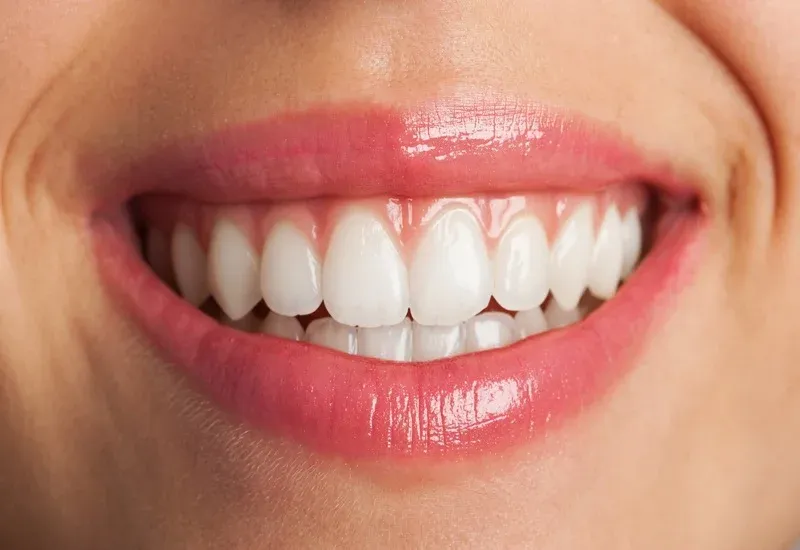Can Dental Implants Help with Periodontal Disease?

by Dr. Uvika Singh
18 March 2025

Periodontal disease, commonly known as gum disease, is a widespread oral health problem that affects millions of people worldwide. It starts with gum inflammation (gingivitis) and can worsen into more serious stages (periodontitis) if not treated quickly. For those who have lost a lot of teeth due to advanced periodontal disease, dental implants might be a good option to restore both the function and appearance of their mouth.
In this guide, we will look at what periodontal disease is, how dental implants work, and if they are an effective solution for people dealing with this issue.

Understanding Periodontal Disease
Periodontal disease is an inflammatory problem that affects the tissues supporting the teeth, including the gums, ligaments, and bone. It usually begins with gingivitis, which is the inflammation of the gums caused by plaque. It is a sticky film made of bacteria, food, and saliva.
If gingivitis is not treated, it can develop into periodontitis, a more serious form of gum disease where the inflammation goes deeper into the supporting tissues and bone. It can lead to tooth loss.
What Are Dental Implants?
Dental implants are artificial tooth roots made from titanium, a strong and safe material. They are surgically placed into the jawbone, where they bond with the bone over time through a process called osseointegration. Once the implant is securely in place, a crown—the visible part of the tooth—can be attached to restore both function and appearance. Components of a Dental Implant:
- Implant: The titanium post that acts as the artificial tooth root.
- Abutment: A connector piece that holds the crown or bridge in place.
- Crown: The visible part of the tooth, designed to match the shape, size, and color of your natural teeth.
How Dental Implants Help with Periodontal Disease
For people who have lost teeth because of advanced periodontal disease, dental implants provide several important benefits.
Restoration of Function
Dental implants let you eat, speak, and smile confidently, greatly improving your quality of life. Unlike removable dentures, which can shift, implants are securely fixed in place, offering stability and comfort.
Preservation of Bone Structure
When a tooth is lost, the jawbone can start to weaken without stimulation. Dental implants help keep the bone healthy by providing the natural chewing forces it needs, preventing further bone loss and maintaining your facial structure.

Aesthetic Appeal
Implants can be made to match the color, shape, and size of your natural teeth. This ensures that your new teeth blend well with your existing smile, helping to boost your confidence.
Durability
With proper care, dental implants can last many years—often a lifetime. They require the same maintenance as natural teeth, such as regular brushing, flossing, and dental check-ups.
Improved Oral Health
Unlike traditional bridges that can damage nearby teeth, dental implants do not affect the health of your surrounding teeth. This helps keep your overall oral health in good shape.
Enhanced Comfort
Dental implants feel like natural teeth and don’t cause gum irritation often linked to dentures, making them a more comfortable option.
Causes and Risk Factors of Periodontal Disease
Several factors can contribute to the development of periodontal disease such as,
- Poor Oral Hygiene: Inadequate brushing and flossing can lead to plaque buildup, which irritates the gums and causes inflammation.
- Tobacco Use: Smoking and other forms of tobacco use are significant risk factors, as they impair blood flow to the gums and decrease the effectiveness of treatment.
- Diabetes: Individuals with uncontrolled diabetes are at a higher risk for gum disease due to poor blood sugar control and impaired immune response.
- Hormonal Changes: Fluctuations in hormones, such as during puberty, menstruation, pregnancy, or menopause, can make the gums more sensitive and susceptible to inflammation.
- Genetics: Some people are genetically predisposed to developing periodontal disease, regardless of their oral hygiene practices.
- Certain Medications: Drugs that reduce saliva flow can increase the risk of gum disease by diminishing the mouth's natural ability to cleanse itself.
The Dental Implant Procedure
If you and your dentist decide that dental implants are the right choice, the process typically involves several steps.
Initial Consultation
During this visit, you will discuss your medical history. You will also undergo a comprehensive dental examination, and have X-rays taken to assess your oral health.
Implant Placement
Under local anesthesia or sedation, the dentist will surgically place the titanium implant into your jawbone. A healing period of several months is necessary to allow the implant to integrate with the bone through osseointegration.
Abutment Placement
Once the implant has fully integrated with the bone, an abutment is attached to the implant. This abutment serves as the base for the crown.
Crown Fabrication
Impressions of your mouth will be taken to create a custom crown that matches the shape, size, and color of your natural teeth. This process usually involves working with a dental lab to ensure the best fit and appearance.
Final Placement
The custom-made crown is then attached to the abutment, completing the restoration process. Your dentist will ensure that the crown fits well and matches your bite.
Post-Placement Care
After the implants and crowns are in place, your dentist will provide instructions on how to care for your new teeth. Maintaining proper oral hygiene is crucial for the longevity of your implants.

"The worth of a well-maintained smile is immeasurable"
Are Dental Implants Right for You?
While dental implants offer numerous advantages, they may not be suitable for everyone. This is especially for those with active periodontal disease.
A thorough examination by a qualified dental professional is essential. Your dentist will assess the extent of your gum disease and evaluate the health of your jawbone. They will determine if you are a suitable candidate for dental implants.
The first step is often to address the underlying periodontal disease. This may involve professional cleaning, scaling, and root planning to remove plaque and tartar. In some cases, antibiotics or other treatments may be prescribed to control the infection and inflammation.
If significant bone loss has occurred due to periodontal disease, then your dentist may recommend a bone graft. This procedure involves taking bone from another area of your body or using synthetic materials to create a stable foundation for the implant.
Final Thoughts
Dental implants can be a highly effective solution for restoring smiles affected by periodontal disease. They not only replace lost teeth but also help maintain the integrity of the jawbone and enhance overall oral health. Maintaining good oral hygiene is crucial in preventing periodontal disease. Furthermore, you can contact Advanced Dental Concepts of Oakland today to learn more about how dental implants can help restore your smile and improve your oral health.
Contact your dentist today in Oakland, Dr. Uvika Singh, at Advance Dental Concepts Oakland, to learn more about Can Dental Implants Help with Periodontal Disease?
Resource:
Got a Toothache? Discover Oakland's Trusted Treatment Options
Share This:
Disclaimer
*This media/content or any other on this website does not prescribe, recommend, or prevent any treatment or procedure. Therefore, we highly recommend that you get the advice of a qualified dentist or other medical practitioners regarding your specific dental condition. *

Subscribe to Our Newsletter
Stay informed about the latest dental news, tips, and promotions by subscribing to our newsletter. Enter your email address below to join our community of smile enthusiasts.
